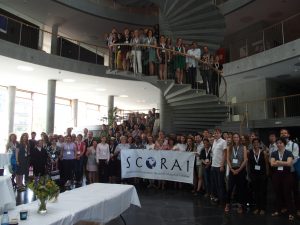Report from Annual Conference of Massachusetts Smart Growth Alliance, May 18, 2017, Worcester, Massachusetts
Halina Brown
I recently attended an annual conference of a Massachusetts organization called Smart Growth Alliance. There, it became clear to me that if the SCORAI community wants to make an impact in the “action” domain of our name it needs to ally itself with other organizations that work on the issues of lifestyles, community, and provisioning systems. MSGA is the case in point. Despite the unfortunate “growth” in its name MSGA’s mission is to promote healthy and diverse communities, protect critical environmental resources and working landscapes, advocate for housing and transportation choices, and support equitable community development and urban reinvestment ma-smartgrowth.org/about/. The conference was a lively gathering of city officials, urban planners and economic development people, community activists, and related brethren in Massachusetts.
None of these people are familiar with the concept of sustainable consumption. And yet, the conference was largely about that. Speaker after speaker highlighted the sustainability and economic benefits of dense communities that are also livable, diverse and equitable, and about their superiority over the remote, car-dependent, often socially monolithic American suburbs. People talked about strengthening neighborhoods, place making, retrofitting suburbs, and the anticipated impacts of self-driving (autonomous) vehicles on carbon emissions and land development and zoning. It was apparent that in the minds of the conference attendees people-oriented urban development, thriving local economy and reduced ecological impact are seamlessly connected. It is a self-evident fact and therefore does not need to be stated.
This opens a question of strategy for SCORAI, both the research and action dimensions of our work. If we are serious about making a contribution to social change we need to link up with organizations that are not directly speaking to the ecological sustainability imperative or to transition to more sustainable consumption. In fact, given the emphasis of the environmental movement on technological solutions for climate change, this type of organizations might be SCORAI’s most important partners.



